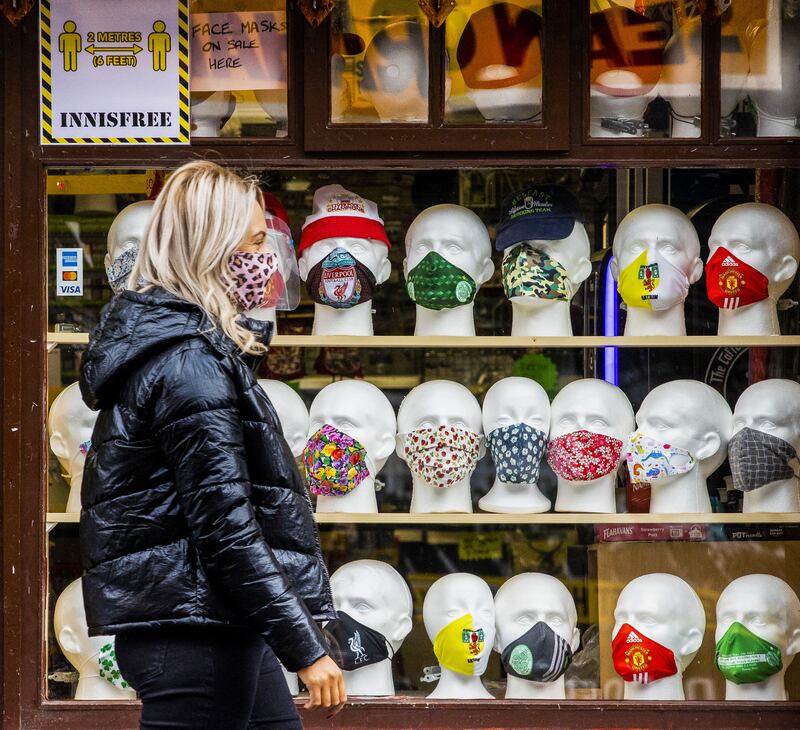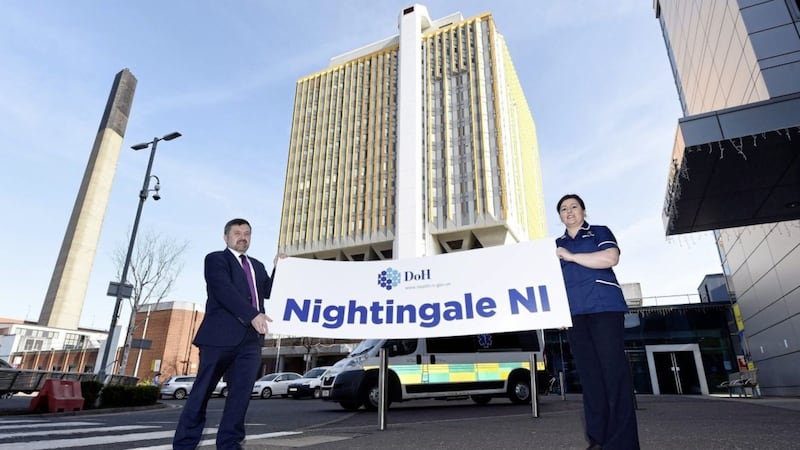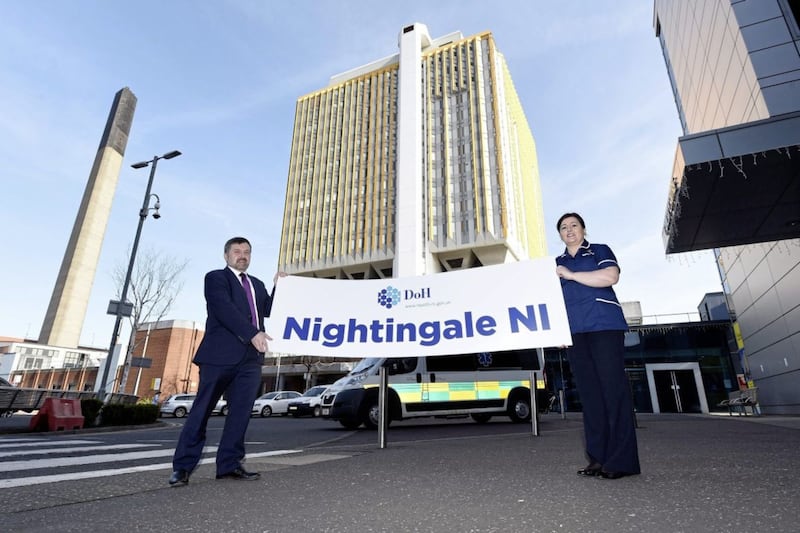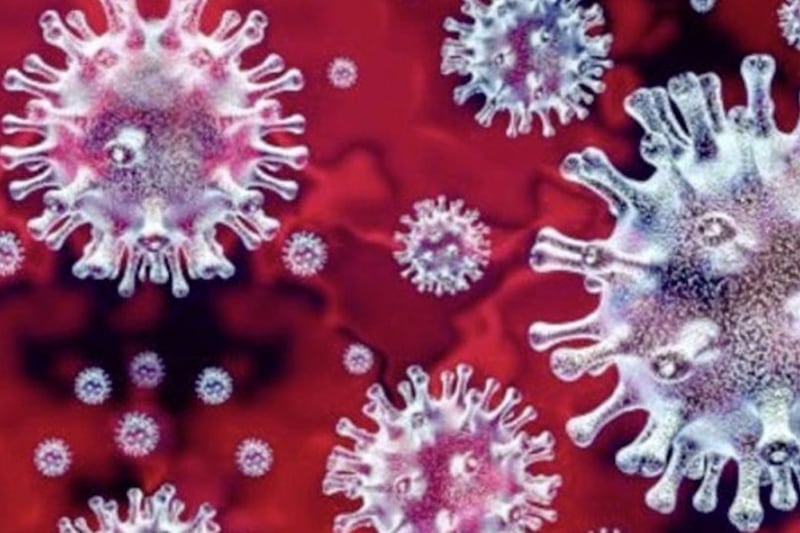Health Minister Robin Swann has outlined a 'surge plan' for Northern Ireland and warned that the health service is facing a 'perilous and developing situation' as Covid-19 cases multiply.
In a statement to the Stormont Assembly, Mr Swann said he is still committed to rebuilding services affected by the first wave of Covid-19, however plans to publish the next phase of Trust rebuilding work has been paused in light of the "deeply concerning" rise in cases.
Key initiatives detailed in the Surge Planning Framework include:
* the continued availability of the critical care capacity at NI’s first Nightingale facility at Belfast City Hospital’s Tower Block. The additional ICU capacity at the City Hospital’s Nightingale facility will only be needed in the event of an extreme surge in demand for intensive care. The Tower Block will remain a protected site for cancer and other specialist surgery for as long possible.
* the additional step down capacity at NI’s second Nightingale facility at Whiteabbey Hospital.
* the establishment of a regional cancer reset cell to oversee the resumption of screening, diagnosis and treatment of cancer patients in clinically safe environments as quickly as possible, and to protect these services as much as possible in the event of further potential surges of Covid-19.
* action to capture learning in relation to care homes to mitigate future transmission of the virus in those settings.
* establishing dedicated centres for day case and orthopaedic procedures.
Mr Swann warned MLAs that the health and social care system is facing “a huge and daunting challenge” in what is expected to be the most challenging period in its history.
“We must as a system try to rebuild services; manage the ongoing Covid-19 pandemic; embed innovation and transformation; address winter pressures and plan for the future – all at the same time," he said.
“We demonstrated during the first Covid-19 wave – and despite the limited time to prepare – that we are up to the challenge. It is due to the dedication of all our health and social care staff that anyone who has contracted this terrible virus has had access to the best possible care. I am determined that this will continue to be the case.”
Mr Swann said a policy statement setting out important plans for rebuilding and stabilising cancer services will be published tomorrow.
He said that “given the perilous and developing situation we now find ourselves in” there was no choice but to hold back the publication.
“However, let me reassure members - just because the publication of the plans may be paused, that does not for one moment suggest the efforts of our clinicians to support patients have been paused. Even with the prevailing Covid situation I expect that the rebuilding effort will of course continue, as far as that is possible.”

His comments follow the publication of an open letter from more than a dozen of Northern Ireland's top doctors who specialise in infectious diseases.
This is the first time the consultants - mainly from the Belfast trust - have penned an open letter during the pandemic and have done so due to fears the system is about to become "overloaded".
With half of the signatories involved in the treatment of HIV patients, they also warn of the importance of not "stigmatising" those diagnosed with coronavirus and providing "positive support".
And they say the north's "test and trace system" must be "fixed" to gain better control of the virus.
Break: @RobinSwannMoH announces NI Covid 'surge plan', includes:
— Seanín Graham (@SeaninGraham22) October 6, 2020
- resumption of cancer services
- care home action to mitigate against outbreaks
- centres for day case and orthopaedic procedures
- Nightingale protected site for cancer surgery, only used in "extreme surge"








